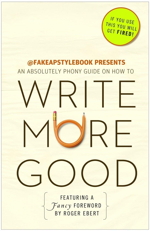Sexual harassment at the San Diego Comic Con.
Bully‘s friend John is a friend of mine as well, and he asked that I help get the word out by crossposting this essay he wrote about some upsetting observations he made at the last San Diego Comic Convention.
His original post is here, along with links to more of John’s friends who are helping out.
Overheard at San Diego Comic-Con while I was having lunch on the balcony of the Convention Center on Sunday July 27: a bunch of guys looking at the digital photos on the camera of another, while he narrated: “These were the Ghostbusters girls. That one, I grabbed her ass, ’cause I wanted to see what her reaction was.” This was only one example of several instances of harassment, stalking or assault that I saw at San Diego this time.
1. One of my friends was working at a con booth selling books. She was stalked by a man who came to her booth several times, pestering her to get together for a date that night. One of her co-workers chased him off the final time.
2. On Friday, just before the show closed, this same woman was closing up her tables when a group of four men came to her booth, started taking photographs of her, telling her she was the “prettiest girl at the con.” They they entered the booth, started hugging and kissing her and taking photographs of themselves doing so. She was confused and scared, but they left quickly after doing that.
3. Another friend of mine, a woman running her own booth: on Friday a man came to her booth and openly criticized her drawing ability and sense of design. Reports from others in the same section of the floor confirmed he’d targeted several women with the same sort of abuse and criticism.
Quite simply, this behavior has got to stop at Comic-Con. It should never be a sort of place where anyone, man or woman, feels unsafe or attacked either verbally or physically in any shape or form. There are those, sadly, who get off on this sort of behavior and assault, whether it’s to professional booth models, cosplayers or costumed women, or women who are just there to work. This is not acceptable behavior under any circumstance, no matter what you look like or how you’re dressed, whether you are in a Princess Leia slave girl outfit or business casual for running your booth.
On Saturday, the day after the second event I described above, I pulled out my convention book to investigate what you can do and who you can speak to after such an occurrence. On page two of the book there is a large grey box outlining “Convention Policies,” which contain rules against smoking, live animals, wheeled handcarts, recording at video presentations, drawing or aiming your replica weapon, and giving your badge to others. There is nothing about attendee-to-attendee personal behavior.
Page three of the book contains a “Where Is It?” guide to specific Comic-Con events and services. There’s no general information room or desk listed, nor is there a contact location for security, so I go to the Guest Relations Desk. I speak to a volunteer manning the desk; she’s sympathetic to the situation but who doesn’t have a clear answer to my question: “What’s Comic-Con’s policy and method of dealing with complaints about harassment?” She directs me to the nearest security guard, who is also sympathetic listening to my reports, but short of the women wanting to report the incidents with the names of their harassers, there’s little that can be done.
“I understand that,” I tell them both, “but what I’m asking is more hypothetical and informational: if there is a set Comic-Con policy on harassment and physical and verbal abuse on Con attendees and exhibitors, and if so, what’s the specific procedure by which someone should report it, and specifically where should they go?” But this wasn’t a question either could answer.
So, according to published con policy, there is no tolerance for smoking, drawn weapons, personal pages or selling bootleg videos on the floor, and these rules are written down in black and white in the con booklet. There is not a word in the written rules about harassment or the like. I would like to see something like “Comic-Con has zero tolerance for harassment or violence against any of our attendees or exhibitors. Please report instances to a security guard or the Con Office in room XXX.”
The first step to preventing such harassment is giving its victims the knowledge that they can safely and swiftly report such instances to someone in authority. Having no published guideline, and indeed being unable to give a clear answer to questions about it, gives harassment and violence one more red-tape loophole to hide behind.
I enjoyed Comic-Con. I’m looking forward to coming back next year. So, in fact, are the two women whose experiences I’ve retold above. Aside from those instances, they had a good time at the show. But those instances of harassment shouldn’t have happened at all, and that they did under no clear-cut instructions about what to do sadly invites the continuation of such behavior, or even worse.
I don’t understand why there’s no such written policy about what is not tolerated and what to do when this happens. Is there anyone at Comic-Con able to explain this? Does a similar written policy exist in the booklets for other conventions (SF, comics or otherwise) that could be used as a model? Can it be adapted or adapted, and enforced, for Comic-Con? As the leading event of the comics and pop culture world, Comic-Con should work to make everyone who attends feel comfortable and safe.







